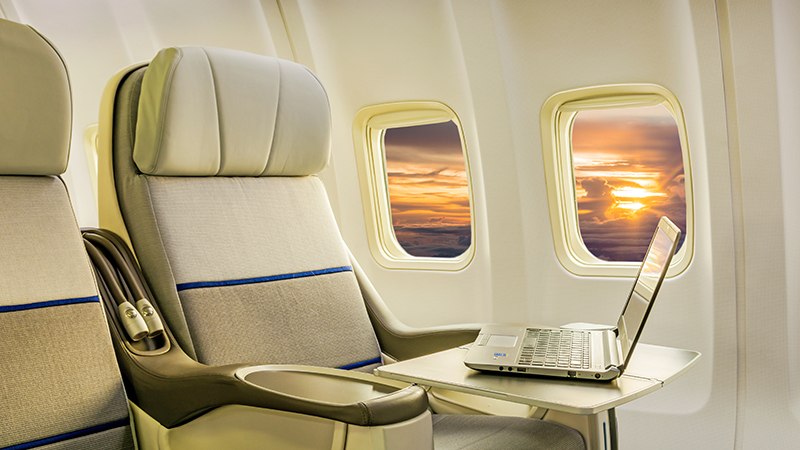

Business-class travel has always been a lucrative market for flight providers. The level of luxury it provides arguably justifies the ticket price, and many passengers prefer the added legroom and privacy it offers.
While air travel has slumped considerably over the last 12 months, there is no doubt it will bounce back stronger than ever. But what does this future hold for business class travel? Will it continue to be the lucrative market it once was? The answer to this question is a definite yes.
Adient Aerospace is an international aerospace company recently awarded a contract for a new type of business class interior. Dubbed Ascent, it will offer a great level of flexibility in cabin arrangement for different levels of passenger privacy.
The seating units can be configured in traditional rows or pods of four or more seats. These can be arranged in pairs for travelling partners or as single seats for greater privacy. Add to this the option for individual doors, and you have got a fully customizable space that offers great passengers privacy and separation levels.
In the search for greater passenger privacy levels, Adient has not forgotten about the main goal: comfort. The seats can be fully reclined into individual beds and have adjustable armrests too. Each pod comes with all the usual features you would expect from business class seating: phone charging ports, electrical outlets, storage, and so on.
Adient Aerospace is clearly setting a new standard for business class air travel. While they are generally not doing anything too revolutionary – many of these features already exist in aeroplane seating – they are focusing on complete flexibility, both for the flight provider and the passengers.
Moving forwards, then, Adient is setting a bar for customization, which is new in the aerospace market. Considering Adient has only been around for about two years, this is a big step forwards for a relatively new company. Their modular seats will debut with Hawaiian Airlines on their Boeing 787s.
AIM Altitude are market leaders when it comes to aircraft interiors. Their cabins, bars, and social areas are bespoke concepts to product designs tailored to each specific airline. Among their major clients are Emirates Airways and Qatar Airways, who use the Airbus A380 in their fleet.
AIM design refreshment and comfort areas that maximize the passenger experience. Within their business class spaces, you will find features such as social seating arrangements, mood lighting, and fully stocked bars. As you can imagine, this sets a very high standard for business class travel.
However, with the discontinuation of the Airbus 380, AIM will have to adapt their practices to fit its replacement, the A350. The largest variant, the A350-1000, entered service in 2018 and is viewed by many as the direct replacement of the A380.
AIM has already worked on several A350s, most notably for Virgin Atlantic. They designed The Loft for Virgin’s long-haul business class passengers, which consists of a more intimate bar area than those seen in AIM’s A380 designs.
As the A350 is smaller, AIM will have to modify its designs to compensate for less space while still maximizing quality and passenger comfort. This will arguably be a fine line to tread in the world of business class, particularly with opposing developments in passenger seating, such as the Ascent, which maximize space and privacy.
While it is fair to assume the air travel industry will bounce back, it is worth questioning whether it will look the same as before. Customer habits will change in the face how long many of us have spent away from aeroplanes.
For example, privacy and separation will likely be hot topics in the coming years for air travel, particularly for those who can afford the luxury of business class. If major airlines are beginning to replace larger aircraft with smaller, more economical models, this could prove a difficult compromise to reach.
That said, 2020 may have changed the face of business class travel forever, more so than economy class. The year has proven how easy it is to do business online through home working and video calls, so will there really be as much demand for business class travel as before?
This could prove advantageous for airlines, as it will allow them to maximize the experience for customers who decide to travel. Fewer customers mean more space, and in turn, greater levels of comfort and privacy. In short, passenger numbers might drop, but the travel experience will likely rise.